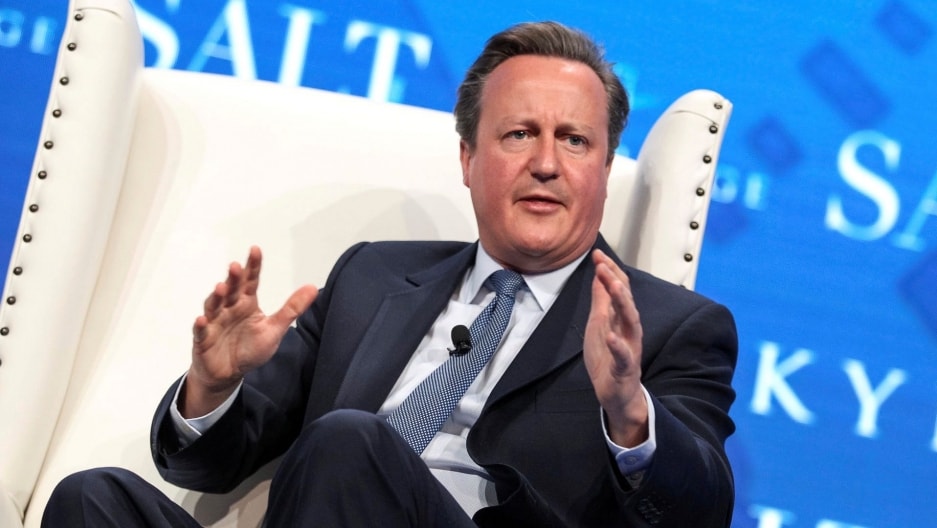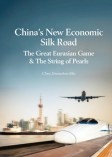Ex-British PM and HSBC Head Take Prime Positions in UK-China Belt Road Financing Ambitions

David Cameron, British Prime Minister from 2010-2016
David Cameron, the British Prime Minister until last year, has taken a position managing a private US$1 billion bilateral Belt and Road themed investment fund; while Douglas Flint, the former group chairman of HSBC, is the UK Treasury’s Belt and Road envoy. Flint will sit over a newly formed UK-led BRI investment board.
The role Cameron has taken breaches the standard two-year moratorium on British Prime Ministers taking commercial roles for two years following their resignation from office. However, the move has received special dispensation from the British government due to its support of the fund, which is not taxpayer supported. Flint, meanwhile, served as Chairman of HSBC Holdings from 2010 until September this year.
The roles raise a number of issues. These include China’s continuing need to generate international credibility by hiring prominent Western politicians and bankers to promote its national agenda, the need for the UK to carve out new business niches following Brexit, and the wisdom of the UK being so keen to attach itself to financial projects not always known for their financial accountability or transparent nature.
“These are risky career moves for both men”, says Chris Devonshire-Ellis of Dezan Shira & Associates. “One hopes that the undoubted access they will get to Chinese leaders will not end up in issues related to the unfortunate yet continuing tendency for China to facilitate deals that would not normally pass scrutiny from the City of London’s own regulatory regime. Both will need to do a great deal of homework and due diligence on the structural behavior of Chinese financing.”
The British government, meanwhile, via its UK Export Finance export credit agency, will make £25 billion in credit available for projects involving British companies in Belt and Road projects in Asia.
“Such initiatives are very welcome”, says Devonshire-Ellis; “however, participating companies need to ensure that they conduct their Belt & Road due diligence properly and are fully aware of the risks and mechanisms to repatriate profits. Professional advice beyond financing needs to be taken, and with rather more than just pure China experience. It is important to remember that the Belt and Road by definition is a multilateral play and numerous national regulations and tax regimes need to be taken into account and not just from China. The Belt Road Initiative takes investors into some largely uncharted waters and attention to local detail must be taken.”
About Us
Silk Road Briefing is produced and written by Dezan Shira & Associates. The firm provides governments and corporate businesses worldwide with strategic, legal, tax and operational advisory services to their SMEs and MNCs investing throughout Eurasia and has 28 offices across China, India, Russia and the ASEAN nations, and partner firms in Central Asia. We have specific and long term experience in China and the OBOR countries. For assistance with OBOR related issues, please contact the firm at silkroad@dezshira.com or visit the practice at www.dezshira.com
 Related Reading:
Related Reading:
![]() How the UK Can Benefit from China’s OBOR Ambitions
How the UK Can Benefit from China’s OBOR Ambitions
![]() Brexit Shows UK Has Turned its Trade Face Towards China, India & the East
Brexit Shows UK Has Turned its Trade Face Towards China, India & the East
Silk Road and OBOR Business Intelligence
Dezan Shira & Associates´ Silk Road and OBOR investment brochure offers an introduction to the region and an overview of the services provided by the firm. It is Dezan Shira´s mission to guide investors through the Silk Road´s complex regulatory environment and assist with all aspects of establishing, maintaining and growing business operations in the region.
![]() Dezan Shira & Associates & The United Kingdom (downloadable brochure)
Dezan Shira & Associates & The United Kingdom (downloadable brochure)
China’s New Economic Silk Road
This unique and currently only available study into the proposed Silk Road Economic Belt examines the institutional, financial and infrastructure projects that are currently underway and in the planning stage across the entire region. Covering over 60 countries, this book explores the regional reforms, potential problems, opportunities and longer term impact that the Silk Road will have upon Asia, Africa, the Middle East, Europe and the United States.







